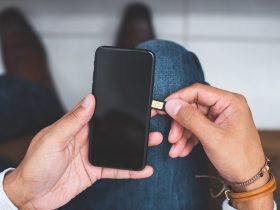In this age of social networking, the boundaries between the real and virtual worlds have become more blurred. It was a matter of time before virtual/online activities began to have consequences in the real world.
The online activities of people are as different and versatile as people are themselves. Arranging meetings with co-workers, making dates with friends with platforms such as Facebook or LinkedIn, and sharing life events via Instagram or Snapchat, are just some of the potential online activities. But while the internet brings a lot of advantages, sometimes there are disadvantages, as well. There are rules and regulations laid down by governments that can easily be broken while using the internet — and which could get you arrested.
Getting down to the nitty-gritty
#1 Gambling can become your freedom game
In many countries, gambling can get you arrested — irrespective of whether you’re playing in the real or the virtual world. It’s strictly forbidden to take part in games such as Poker or Blackjack and even hosting such games can land you in jail. This is valid for your offline and your online life.
#2 Offensive language in posts, tweets or even in private messages
Well, this one is valid for most countries in the world – even if it doesn’t land you behind bars, you will get in trouble for sure. Saying “… before I go and destroy America.” can at least lead to your getting questioned by authorities. This happened to Leigh v.B. and Emily B. who tweeted about their visit to the US. They tried to convince the US authorities afterwards that “destroying” is simply a British slang term for “partying hard”.
#3 Sexting
Sending nude pictures to each other might be legal for adults but not for minors. If they upload or send their own nude pictures it is considered to be “spreading child porn”. This can result in an imprisonment of up to five years.
#4 Open Wi-Fi – the legality of piggybacking
Laws regarding “unauthorized access of a computer network” exist in many legal codes, although the precise wording and meaning differ from one to the next. Interpretation of terms like “access” and “authorization” are not clear, and there is no general agreement on whether piggybacking (intentional access of an open Wi-Fi network without harmful intent) falls under this classification. Some jurisdictions prohibit it, some permit it, and others are not well-defined.— Wikipedia
Your Wi-Fi always should be password protected – anything else can land you in prison. Without your knowledge, criminals or even terrorists could use your open Wi-Fi connection for their activities and this can land you in trouble with the law in almost any country. This happened to Barry C. whose neighbor used Barry’s Wi-Fi to access child porn websites. Later the neighbor was arrested but Barry had to withstand questioning by the police for almost a month.
It is always good to password protect your Wi-Fi. Use WEP, WPA (WPA-Personal), or WPA2 (Wi-Fi Protected Access version 2) for that.
#5 Dancing in a video
Sounds weird, right? Well, in Iran this is a serious offense. Recently six people were arrested for dancing to the Pharrell Williams song “Happy.” They weren’t so happy afterwards as it bought them 91 lashes and 1 year prison.
After they were found to be presumably dancing and making a video near a Second World War memorial, a youth and two women were jailed in Russia for ~2 weeks.
#6 Deleting your search history
In the US, David K. was arrested for erasing information on his computer. David was a student of the University of Tennessee and was being investigated by authorities for presumably hacking the Yahoo account of Sarah Palin. In India, once upon a time you were forced by law to save your browsing history for three months. After a public outcry this law was discarded again.
#7 Using a VPN
In some countries, using a VPN can get you in trouble with the authorities. In the United Arab Emirates, as the best example, VPN use is semi-legal. It is only considered illegal if it is used to make online calls that would otherwise not be possible, download unauthorized media content, or enter restricted websites. In short, most everything that a VPN is used for.
As you can see, sometimes your normal online activities such as dancing or playing at online gambling games can have real world consequences. How well do you know the laws of your country?














